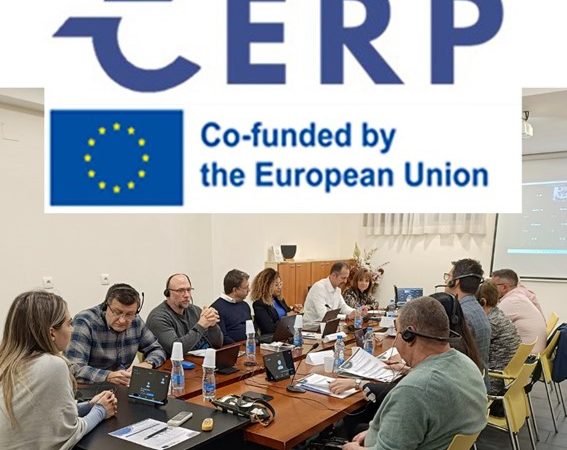The Meeting of Researchers and Partners was held in Belgrade, Serbia, on November 14, within the framework of the CERP project “Collective bargaining and environmental responsibility: Challenges and perspectives for transport and the public sector”, funded by the European Union.
This project analyses collective bargaining and environmental responsibility to identify challenges and perspectives in the professional fields of transport and the public sector , with the aim of proposing measures and recommendations in all the Member States and candidate States of the European Union.
The event analysed the impact of European green transition policies on collective agreements and agreements negotiated at national and sectoral level in the public sector and in the transport sector ; highlighting the innovations or clauses introduced in the negotiation and the scope that the measures implemented by the EU have for workers and employers; as well as the contribution of the social partners to facilitate the transition towards a low-carbon economy.
the Secretary General of CSIT UNIÓN PROFESIONAL remembered the victims of the catastrophe in Valencia caused by the recent DANA caused by climate change, and stressed the importance of addressing environmental responsibility from the perspective of collective bargaining, despite the difficulties. He pointed out that “the absence of a specific definition of collective bargaining by the European Union, both at national and transnational levels, limits this basic system of worker participation.”
In this regard, he has indicated the need to delve deeper into the EU framework in the design of collective bargaining: “understood as a process between employers and unions that is binding on both parties and has a normative rank comparable to a legal norm, giving validity to its contents that, otherwise, would lead to non-compliance, defenselessness of workers, or lack of real guarantees in employment conditions.”
He also referred to the work still to be carried out during the project, stressing the importance of ensuring that it enables the objective of improving the framework for collective bargaining in the promotion, creation and implementation of sustainable development policies at national and European level to be met, and to facilitate a fair transition in the mechanisms for energy and digital transition, with the design of strategies, recommendations and improvements necessary for all our countries and for all the States of the European Union.
During the meeting, each participating country presented the analysis of its research on the implementation of the European Green Deal and sustainable mobility and the treatment that should be given to the energy transition from a fair perspective, with the participation of workers and within the framework of green social dialogue and collective bargaining.
Finally, the structure for developing a policy document containing best practices and recommendations for improving collective bargaining on environmental responsibility for all EU Member States and candidate States has been agreed.
You can find the Minutes of the meeting at the following link.
The Final Report from Serbia can be accessed via the following link.

